Her Story
Jasvir Kang was born on the 1st February 1948 and passed away on the 3rd May 2023. This is a tribute website to her remarkable career spanning over fifty years of creative activism.
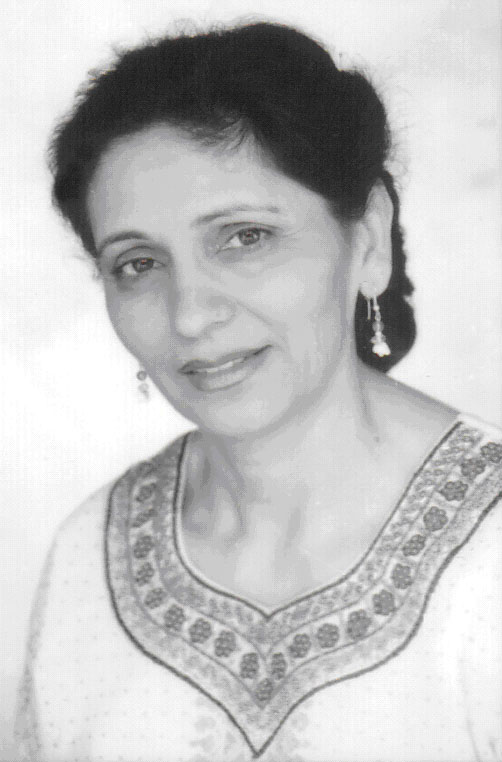
Jasvir Kang was born in Punjab, North India. She trained as a visual artist but it wasn’t until she arrived in England at the end of the 1960’s, when she realised her real creative passion was writing.
Jasvir spent the 1970’s writing short stories and poems, reflecting her own experiences and the lives of South Asian women she knew. The stories spoke of oppression and inequalities experienced by some of these women and the impact this was having on family life as well as their own mental health.
Jasvir’s first book of short stories, ‘Geji’ was published in 1989. A further three more books were published in the 1990’s.
By the early 1990’s, Jasvir began what would become a successful career as a radio broadcaster, with her first presenting job on Coventry (UK) based South Asian radio station, Radio Harmony. This followed presenting work on BBC Radio WM and Radio Sangam. By the late 1990’s Jasvir had established herself as a popular presenter on Radio XL (Birmingham, UK), where she discussed social themes, shared her poetry and stories with listeners. Jasvir ended her broadcast career on Ambur Radio (Walsall, UK) in 2018.
Jasvir has also worked as an actress and facilitated drama and story telling workshops. Some of the companies she has worked with include Men Mela Theatre, Multi Arts Nation Ltd, Reminiscence Theatre, Pangran Theatre, Kali Theatre, Meri Khani and the Belgrade Theatre. She has also performed with Indian dance company Mrittika Arts at the Warwick Arts Centre.
Published Books

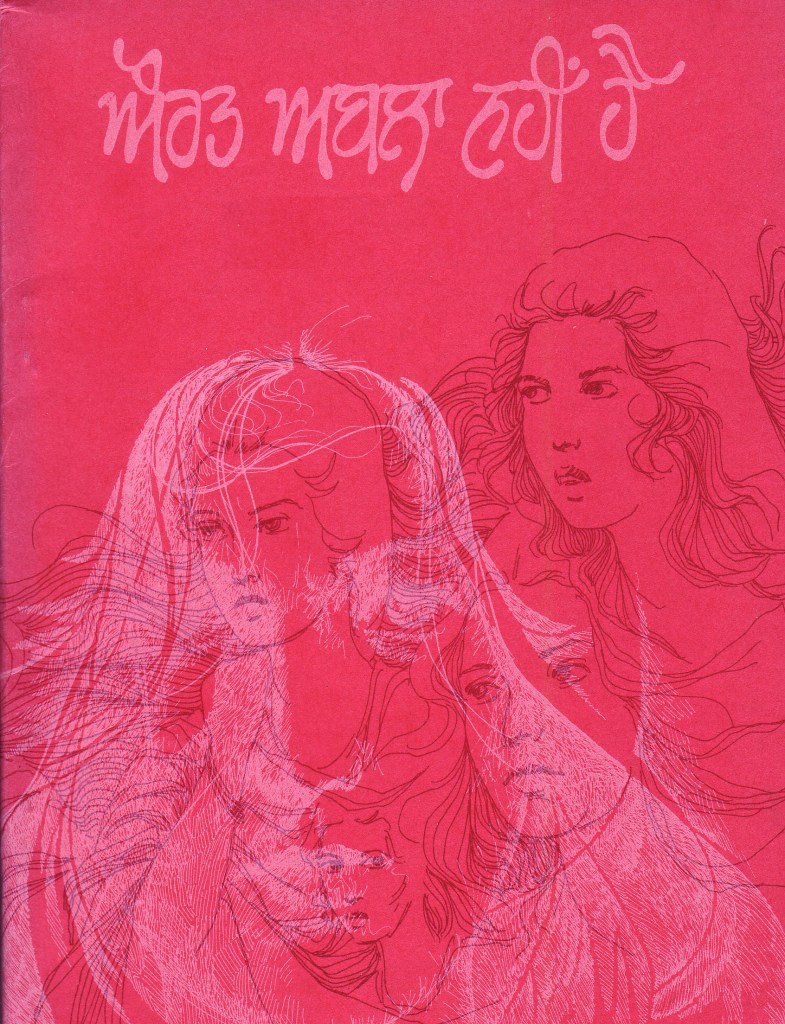
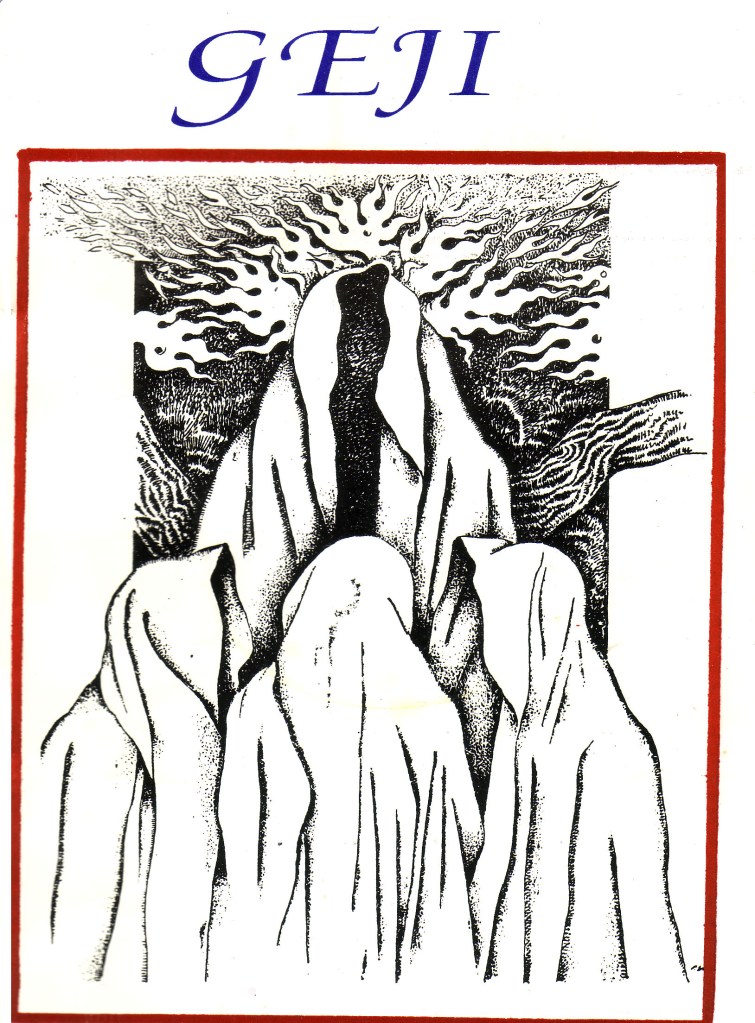
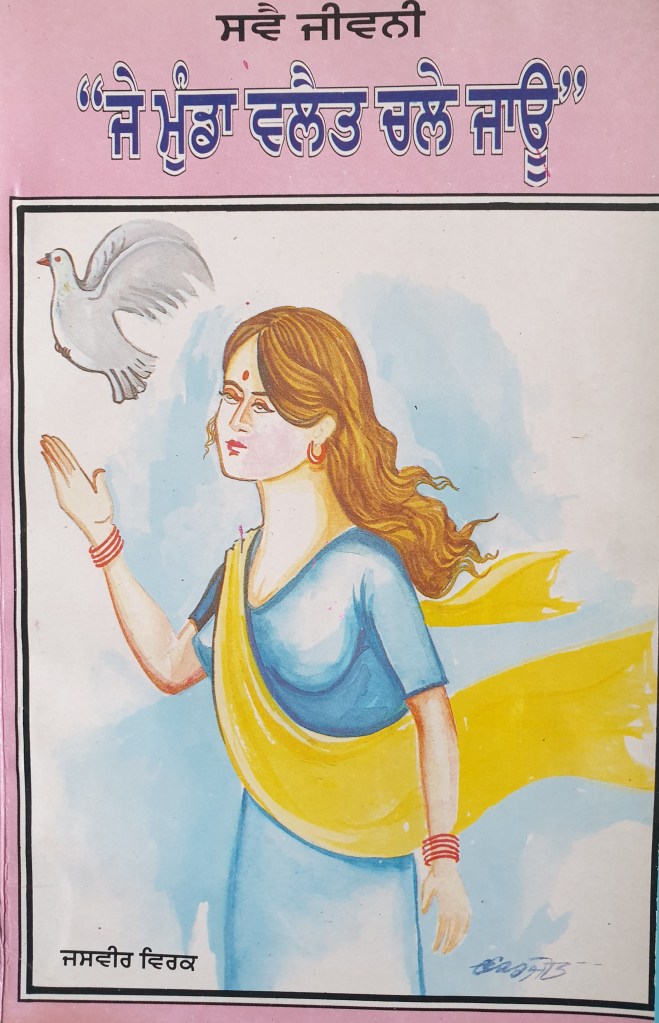
Geji (1989)
‘Geji’ was a book of short stories written in Punjabi. There is a raw authenticity to this first book, as it captures the struggles of the various characters in an uncompromising way.
Aurat Abla Nahin Hai (1991)
‘Aurat Abla Nahin Hai’ (Not A Weak Woman) is a book of short stories written in Punjabi. It explores the assumed role of the South Asian woman living in the UK with strong female characters taking the lead in the narratives.
Geji (1993)
‘Geji’ was translated into English and published in 1993. This was due to demand from non-Punjabi readers.
Jai Mundai Blath Challa Joi (1995)
Jasvir’s last publication, ‘Jai Mundai Blath Challa Joi’ (If Boy Goes To England) was her autobiography.
CDs/ DVD
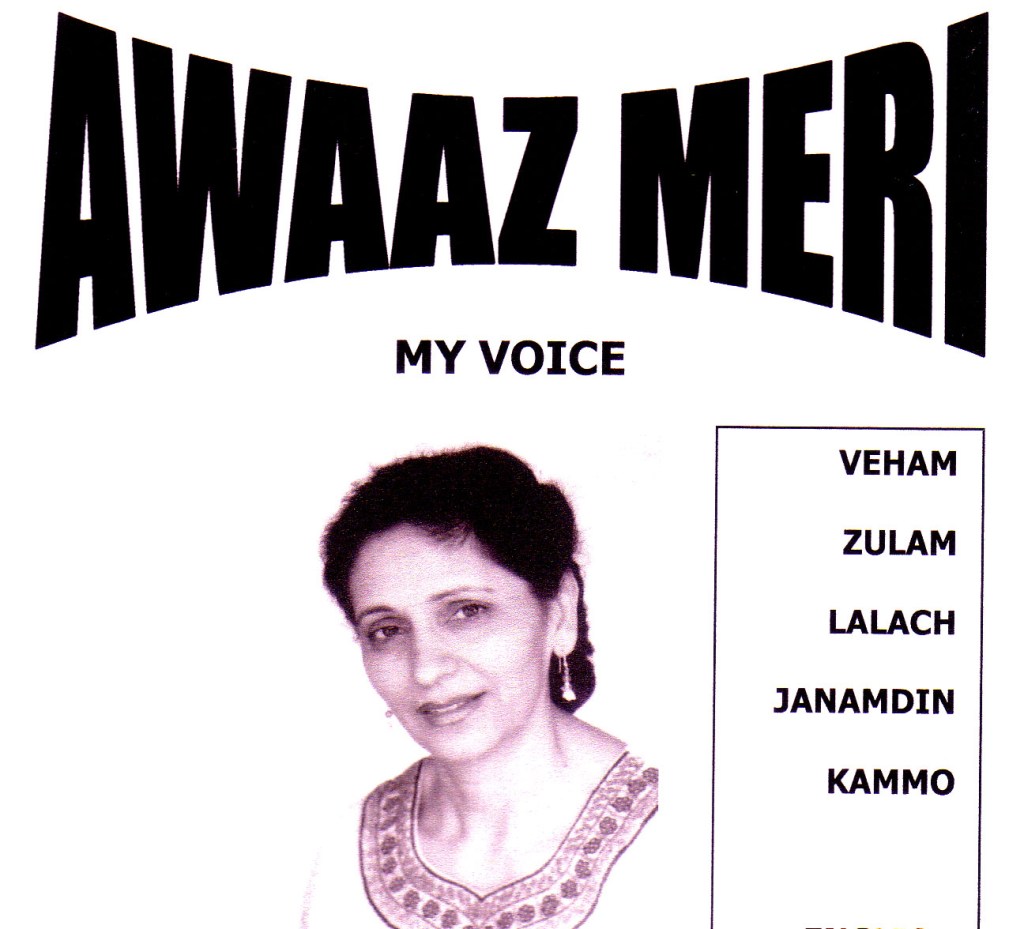
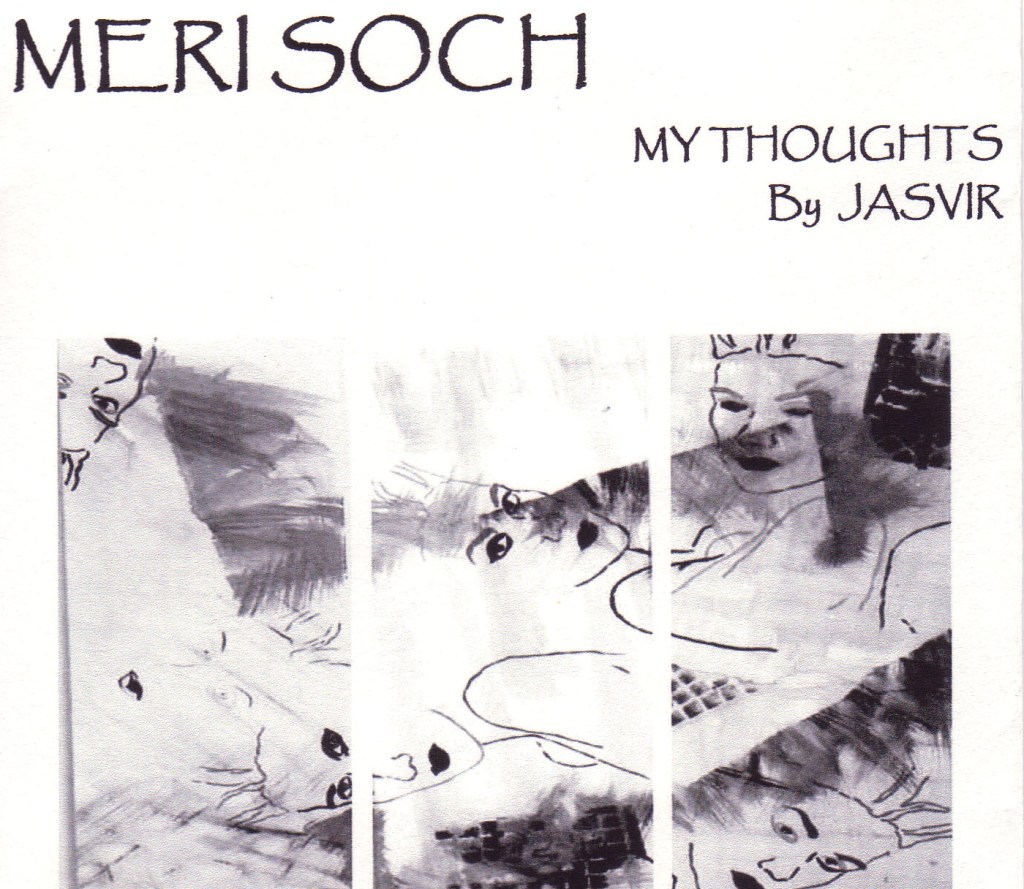

In 2004, Jasvir led storytelling workshops for community groups, a project funded by Arts Council England One of the tools developed to support the workshops was a CD of Jasvir’s short stories, called ‘Awaaz Meri’ (My Voice). The CD was available in four languages (English, Punjabi, Hindi and Urdu). This followed the CD release of ‘Meri Soch’ (2005) with Jasvir’s thoughts on social and health matters. The CD cover design was by Dilwara Begum. Her final CD featured her Punjabi poems and was released in 2006. These CDs were produced by Multi Arts Nation Ltd.
In 2020, during the Covid-19 pandemic, writer and director Paven Virk facilitated storytelling workshops with community groups using video technology. The workshops explored themes of mental health and isolation during the pandemic. The workshops were inspired by the writings of Jasvir. A DVD was produced (by Hardish Virk) to accompany this project, featuring a short drama, performances of Jasvir’s poetry and a tribute video celebrating the creative life of Jasvir.
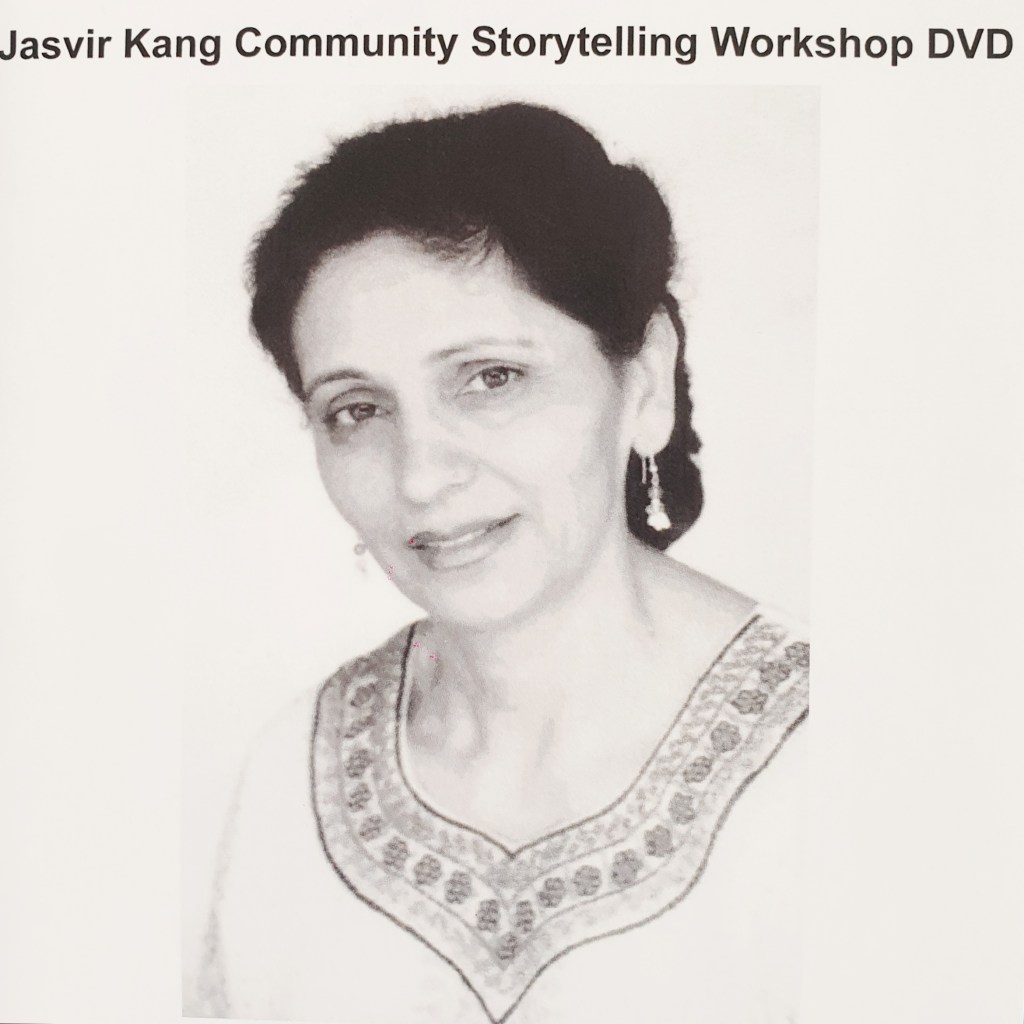
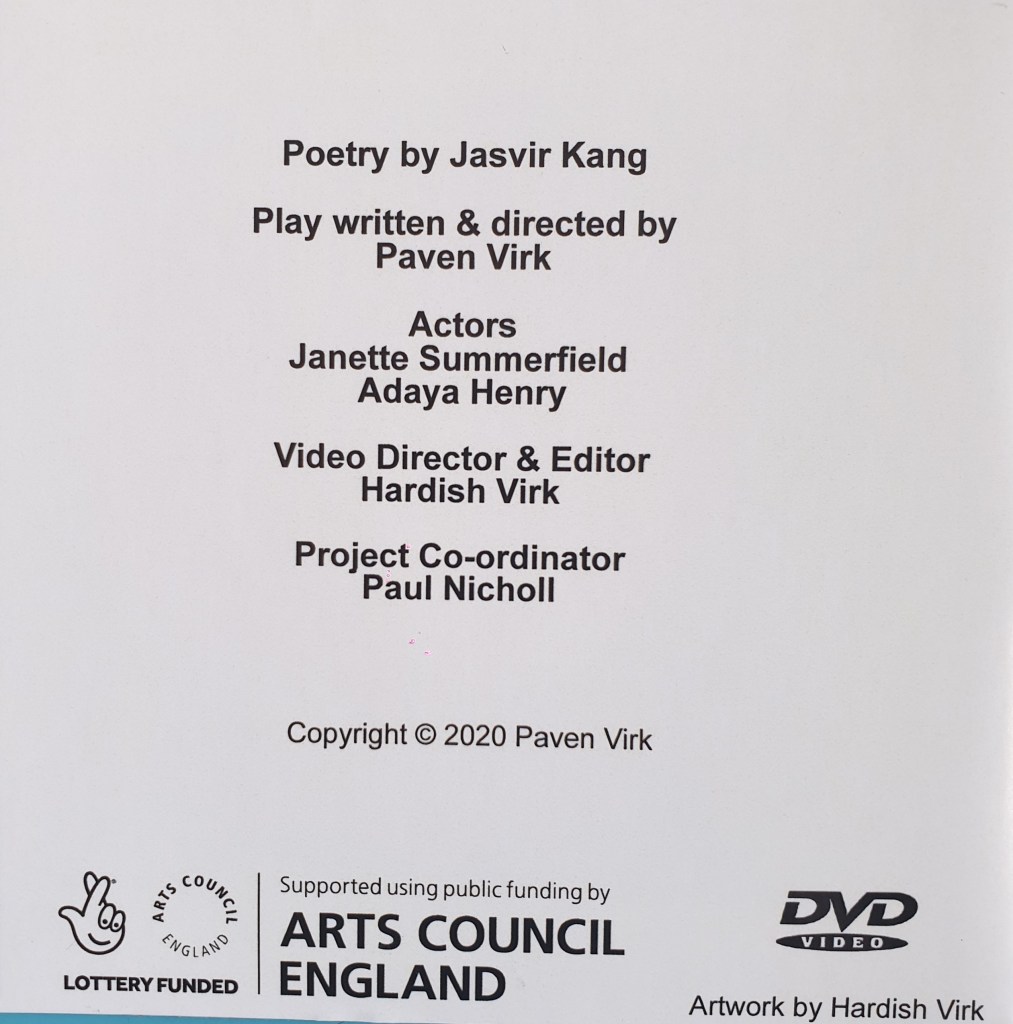
Poems
The following are a sample of poems by Jasvir Kang (originally written in Punjabi). The English text will never do justice to the original Punjabi versions but this allows her words to reach more people. These were written at different times during the 1990’s.
Jasvir has always spoken her mind and challenged the conservative attitudes within her own community as well as sharing her experiences and thoughts with the wider community.
Some of these poems are harrowing and others are of celebration – in all cases they reflect the reality Jasvir has known in her life and one that continues to exist around the world to this day.
Woman
I am made aware of my real value (status) and that I am a woman, even before I open my eyes, by my nearby grieving surroundings.
People welcome my entrance to this world with sad and dropped faces.
When I see the sad and defeated face of the one who has given me birth, it leaves very little room to complain about the dropped and sad faces of others.
As an unwelcome visitor, I am bound to suffer the result of my parents’ mating as a curse.
After seeing very clearly a warning in the red angry eyes of my grandad, paternal uncles and brother that their white turbans should not be stained (be righteous and not to bring shame on us), I understand that my welfare is in staying well away from the fire.
I keep my desires buried inside me when I watch my siblings playing outside.
I have been obeying the custom of keeping a scarf on my head and covering all my body.
I have been obeying custom of keeping myself well presented for every new comer (interested in marrying me) even after being rejected by thousands.
For my parent’s happiness, I consider that my welfare and honour lye in spending my whole life with someone who is twice or even three times older than me.
I keep trying to fulfil my promise to spend my whole life with an impotent husband.
For my husband’s happiness I take pride in spending my whole life with his second wife or mistress.
I consider it is my duty to sit awake whole night waiting for my husband to come home.
I consider myself fortunate in fulfilling the ritual carried on for centuries, of burning myself alive with the dead body of my husband.
I am burnt alive by pouring kerosene oil on me in front of everyone, for bringing less than asked dowry.
I consider myself a complete woman by living like a slave to my husband.
Because I am a man
I inherit every thing as soon as I am born.
I can go outside through the courtyard of my house as soon as my legs support me to walk.
Because I am a man.
After I have grown up a little more I can go out to play football with lads of my age in the ground.
As soon as I step into my youth I can indulge myself in sexual pleasure.
Because I am a man.
At the time of selecting a life partner, I can see and reject as many girls as I wish.
Even after getting married I can make other mothers, daughters and sisters victims of my lust.
Because I am a man
When ever I wish, I can divorce my wife to marry again, a second, third, fourth time.
If I want, I can burn my wife alive by pouring kerosene oil over her.
Because I am a man.
If my wife does not bring as much dowry as asked for, I can openly auction my wife.
If my wife does not produce a male child I can have a second wife as well.
Because I am a man.
If I wish, I can go to pubs, clubs to see naked dances until midnight, I can come home completely drunk every night.
Because I am a man.
If I do not wish to come home, I can spend the whole night away from my house.
I can beat my wife up badly with sticks whenever I wish to.
Because I am a man
If I am not sexually satisfied with my wife I can fulfil the desire by making my daughter victim of my lust.
If I do not like something my daughters and sisters have done, I can strangle them to death.
Because I am a man.
If I wish, I can shave off my head and beard.
If I wish, I can roam round in a bazaar alone in my under pants.
Because I am a man.
I can live my whole life on my wife’s earning.
When I can not think straight I can throw my own mother out of my house.
Because I am a man.
With the rights I inherit from my birth, I can live my whole life happily and with pride.
Because I am a man.
Latest News of the Day
One more woman was raped by throwing her in a car by force.
Who was that woman?
How old was she?
What was our relation with her?
Was she our paternal grandmother, maternal grandmother, mother, sister or daughter?
It seems she was no one to us.
Her underdeveloped parts of the body told us that she was a young girl.
Latest news of the day.
One more woman was raped by breaking into her house by force.
Who was that woman?
How old was she?
What was our relation with her?
Was she our paternal grandmother, maternal grandmother, mother, sister or daughter?
It seems she was no one to us
Her parts of the body told us that she had just stepped into her youth.
Latest news of the day
One more woman walking on the road was raped by dragging her into a nearby bush.
Who was that woman?
How old was she?
What was our relation to her?
Was she our paternal grandmother, maternal grandmother, mother, sister or daughter?
It seems she was no one to us
Her parts of the body with loose and wrinkled skin told us that she was an old grandmother reaching her eighties.
Mother! the life giver
How painfully you might have died when your own children, to whom you gave life, would have helped others to strangle you to death.
Mother! the life giver
Who will understand it and whom will you make understand why you became so ill tempered and the pain and feelings that were buried deep inside you.
Mother! the life giver
People said in the crowded court whatever they had heard from others (whatever the judge said to the man).
You have been through hell for a very long time without any fault of your own.
No ordinary person can endeavour to go through the hell for such a long period.
Mother! the life giver
The statement made by the judge in the court, full with people, would have penetrated your lifeless body.
Mother! the life giver
You have been going through hell for centuries and your suffering will continue.
Because the affect of your suffering perhaps does not reach the male human race.
Mother! the life giver
Wakeup! endeavour to change your hell like life into a blissful life.
Or in this man dominated society no one will take any notice of your sufferings.
Note : This poem is based on an incident happened in the place called Vapre, India. In this incident, a man of the family killed his wife with the help of his own children and was able to walk out of the court free of charge. Because the children gave their statements in favour of their father.
Love
What type of people they would have been, who found love in return for their love.
Whenever I wished for happiness I received garlands of sadness.
I cannot find anyone to whom I can blame.
I Iaugh and cry on my own as there is no loved one with whom I can share my sorrow and happiness.
In search of happiness I went so far that when I turned to go back I could not find the way back.
Is there a special God for those who won at every walk of their life and were honoured for their victory.
To reach the destination of happiness, I could not find any devoted companion.
It is said that you can not blame your fate as you are yourself responsible for making your own destiny.
My Mother’s Sari
It looks like a rainbow of seven colours in the sky.
Shine and freshness of it’s yellow colour distributes perfume of Satvarg (marigold) flower.
Various beautiful colours of it remind me of Indian sweets.
Orange colour of it reminds me of the fragrance of the oranges displayed on the small hand carts in India.
Red colour of it reminds me of the henna colour on the young children and women’s hands.
In the blue colour of it I can see colour of the late evenings in India.
The sari my mother is wearing shows me a reflection of India.
Diwali
(Festival of Lights)
Festival of Diwali comes every year
bringing with it new and old memories.
Everyone’s heart fills with happiness when they see lights of various colours.
Queues start building up to buy Barfi, Ladoo and Jelabi (Indian sweets) from the morning.
Big and small stores get crowded by the people to buy fire-works (Patake, Fuljharian).
The lights of the festival add to the happiness of the people.
Brightness of the beautiful lights is dimmed by the thought of the atrocity that is taking place at present time in the world.
I do not know who should be blamed for this,
but I will ask them to come and join us,
in celebrating this happy occasion,
by leaving behind feelings of racism, rich
and poor, colour, beauty and religious differences.
Embrace each other and promise that we will bring the light of the Diva (clay lamps) into the houses of the depressed and helpless people.
Old Age
It never occurred to me
that one day I will grow old too,
that my hands and feet will start trembling,
that my legs will not be able to bear the weight of my body.
It never occurred to me,
that I will need to wear false teeth to eat my food,
that it I will be hard to hear too.
It never occurred to me
that my skin will no longer be firm,
that I will lose my eye sight.
It never occurred to me
that I will lose my hair,
that all my hair will turn grey.
It never occurred to me
that I will lose my memory,
I will have difficulties in recognising my own family members.
It never occurred to me
that I will be left alone in this world full of people,
that I will have to live on others’ mercy.
It never occurred to me,
that one day I will grow old too.
Memory
Memories of the country,
the faint fragrant coming from the soil of the land
how could I forget the country.
The wide open courtyard of my house
where I spent my childhood
where I grew up and turned into a young person
how could I forget the courtyard.
The footpaths which took me to schools and wells
the footpaths on which I learnt to stand
on my feet and to walk
how could I forget the footpaths.
The women, who spanned cotton in groups
on the spinning wheels, in the alley ways,
the women who made big piles of the spanned cotton
how could I forget the women.
The loud and long singing tunes (a special type of singing style) of the young ladies who sang and danced at the time of weddings.
How could I forget the loud and long singing tunes
which enhanced happiness on every occasion.
Childhood
How good are the days of childhood,
we have no worries about good and bad,
about looking good or about skin colour,
the only worry we have is about our mother’s company.
How good are the days of childhood,
we have no worries about getting less or more,
about what is mine and what is yours,
the only worry we have is about our play.
How good are the days of childhood,
we have no worries about our race,
about being rich and poor,
the only worry we have is about our sleep.
How good are the days of childhood,
we have no worries about generating income,
about going to work,
the only worry we have is about our food.
Dolli
(Palanquin*)
Once you have been sent in the Dolli
to you husband’s house,
do not leave the house until you die.
We will have peace of mind only if we could see
your dead body carried out from that house in a coffin.
Treat your mother in-law as your own mother
even if she does not allow you to have food more than once a day.
Always respect her by bowing to her even if she beats you up and breaks your bones.
Treat your father in-law as your own father,
even if he tries to touch you with sexual desires.
Do not let anyone have even slightest idea about his behaviour, my daughter!
because that is how you will be faithful to them.
Treat your sister-in-law as your own sister
even if she makes your life a hell.
Even when your sister-in-law comes back from her own in-law’s house and turns her brother (your husband) against you so to beat you up.
If you could not have a child because your husband is impotent, take the blame yourself.
If you are not given enough food, do not let the whole world know about it (keep quiet about it).
If you want your parents to live with dignity
do not give others a chance to lift a finger towards them even if your life has finished for you.
Once you have been sent in the Dolli
to you husband’s house
do not leave the house until you die.
We will have peace of mind only if we could see
your dead body carried out from that house in a coffin.
“Dolli”- in olden days an Indian bride was sent to her husband’s house in a wooden carriage called Dolli.
A woken up woman
Even after being born in grieving surroundings I will endeavour to change it into happiness.
I will endeavour to make my dear mother’s helpless and defeated face to bloom like a Rose flower .
I will endeavour to fight like a lioness to have rights equal to boys in every walk of my life.
I will endeavour to answer the warnings of the red angry eyes of my grandad, paternal uncles, father and brother with my own red angry eyes.
I will also endeavour to let my hands reach their necks who strangle their daughters, sisters to death.
I will endeavour to burn all those who have burnt their daughter in-laws alive by pouring kerosene oil over them, with the same match stick.
I will also endeavour to bury those alive in the dowry who have greed of getting more and more dowry.
I will endeavour to show those, who instructed me to keep a scarf over my head and to keep my whole body covered, that I wish to live my life in my own way.
I will endeavour to express my choice too at the time of selecting a life partner.
I will endeavour to reject the person who would like to marry me.
I will endeavour to take my share of the rights from a man’s inherited rights.
Geji – Stage Production
The success of the book, ‘Geji’ led to a theatre adaptation, co-produced by Multi Arts Nation Ltd and the Belgrade Theatre. The play opened to both critical and audience acclaim in 1995. Jasvir played one of the characters and the narrator in the production. The following images include the leaflet (left); cast photo (centre); newspaper articles (right).




Latest Work
The following are the last events Jasvir was part of, where she read her poetry in Punjabi with accompanying English translation.
2016
- Belgrade Theatre Mela, Coventry
- Birmingham > Brick Lane > Bangladesh, Birmingham
- Panjabi Mushaira: A Mehfil Celebrating the Punjabi Language at SOAS University, London
2017
- Wolverhampton Literature Festival
- Arts 4 Dementia Charity Event, Coventry
- Karachi Literature Festival, London
Other Contributions
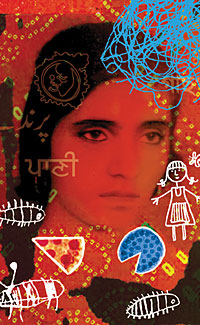
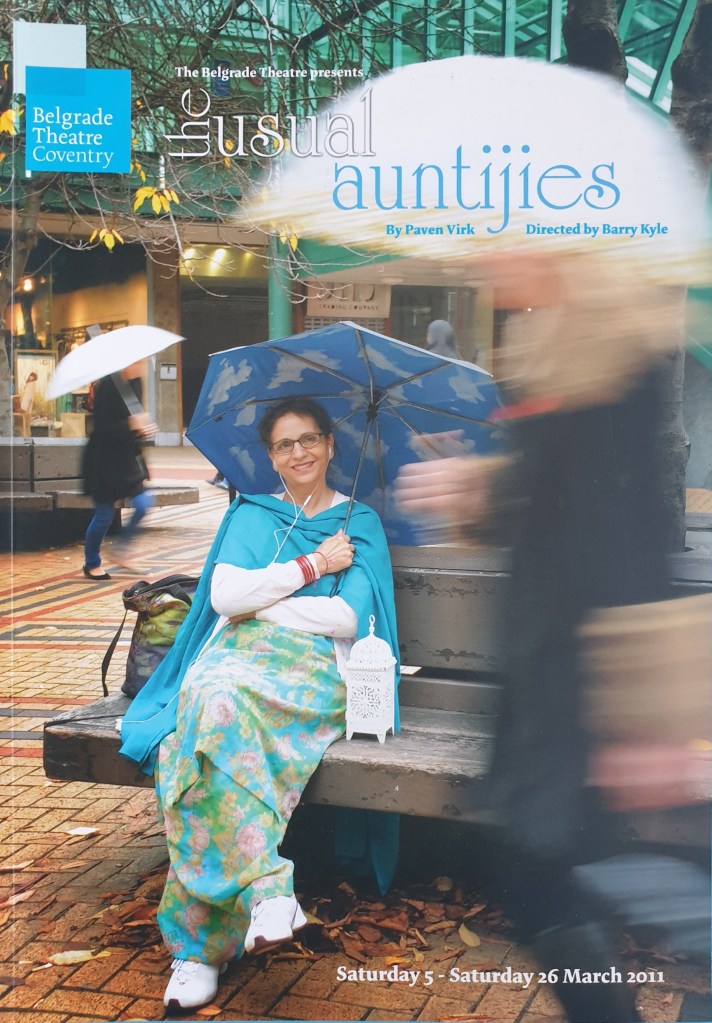


‘Autobiography of a Face’ (2005)
Written by Manjinder Virk
Featuring a young Jasvir on the poster
‘The Usual Auntijies’ (2011)
Written by Paven Virk
Featuring Jasvir on the publicity material
‘A Gathering of Minds’ (2012)
Jasvir’s poem ‘My Mother’s Sari’ was included in this book of international poets
Rehearsal still of Jasvir for ‘Geji’ – the stage production (1995)
Please contact Hardish Virk at info@hardishvirk.com for enquires